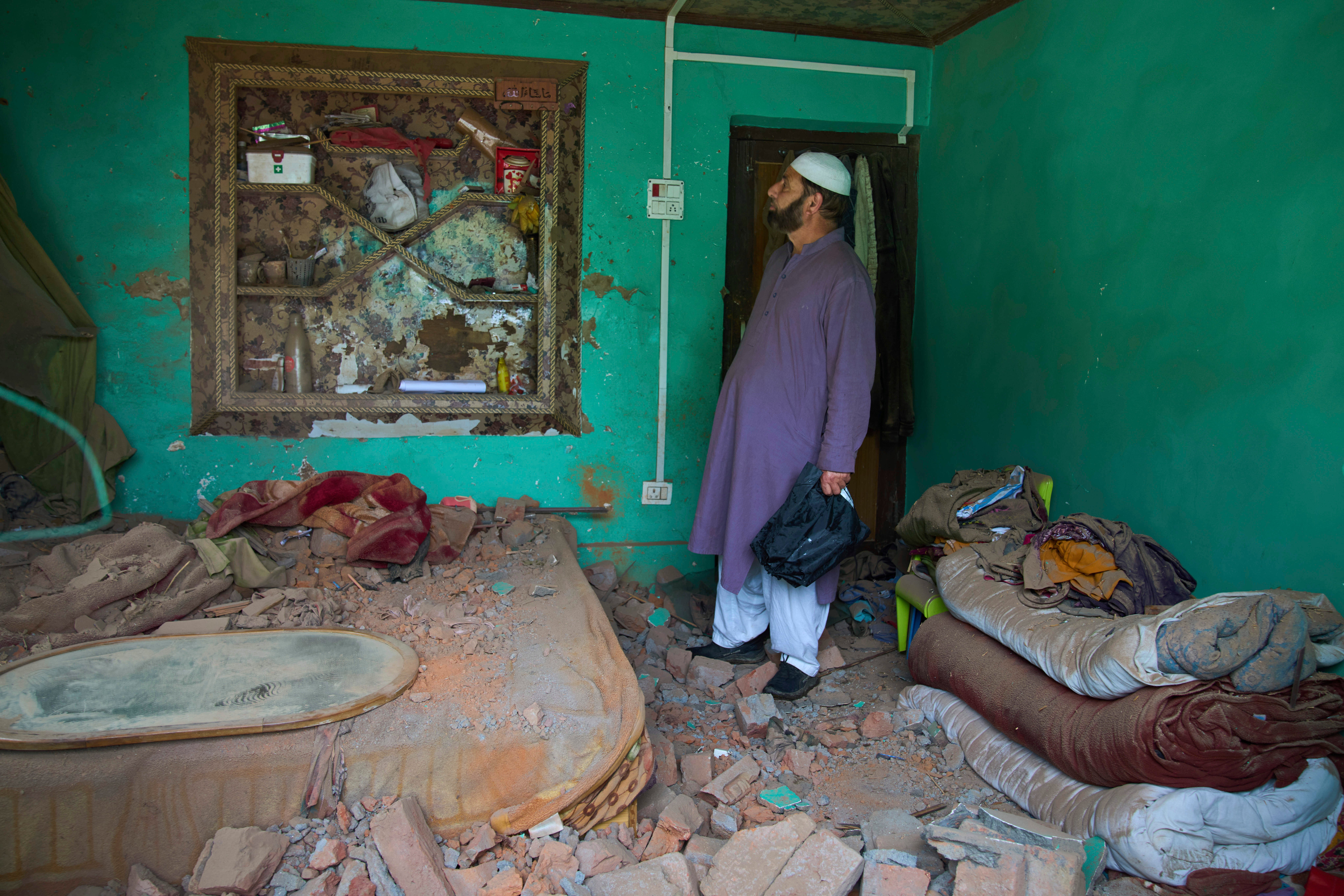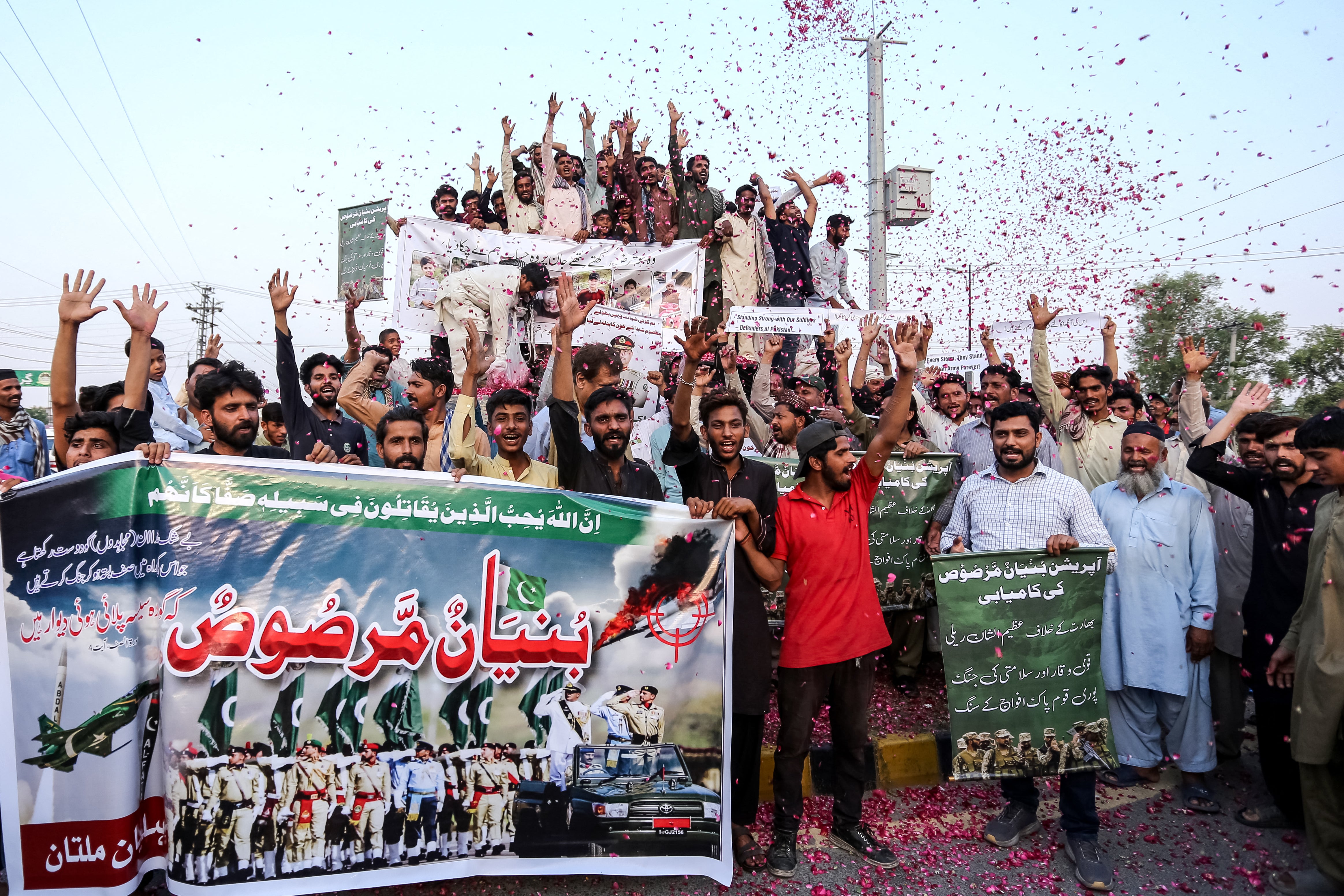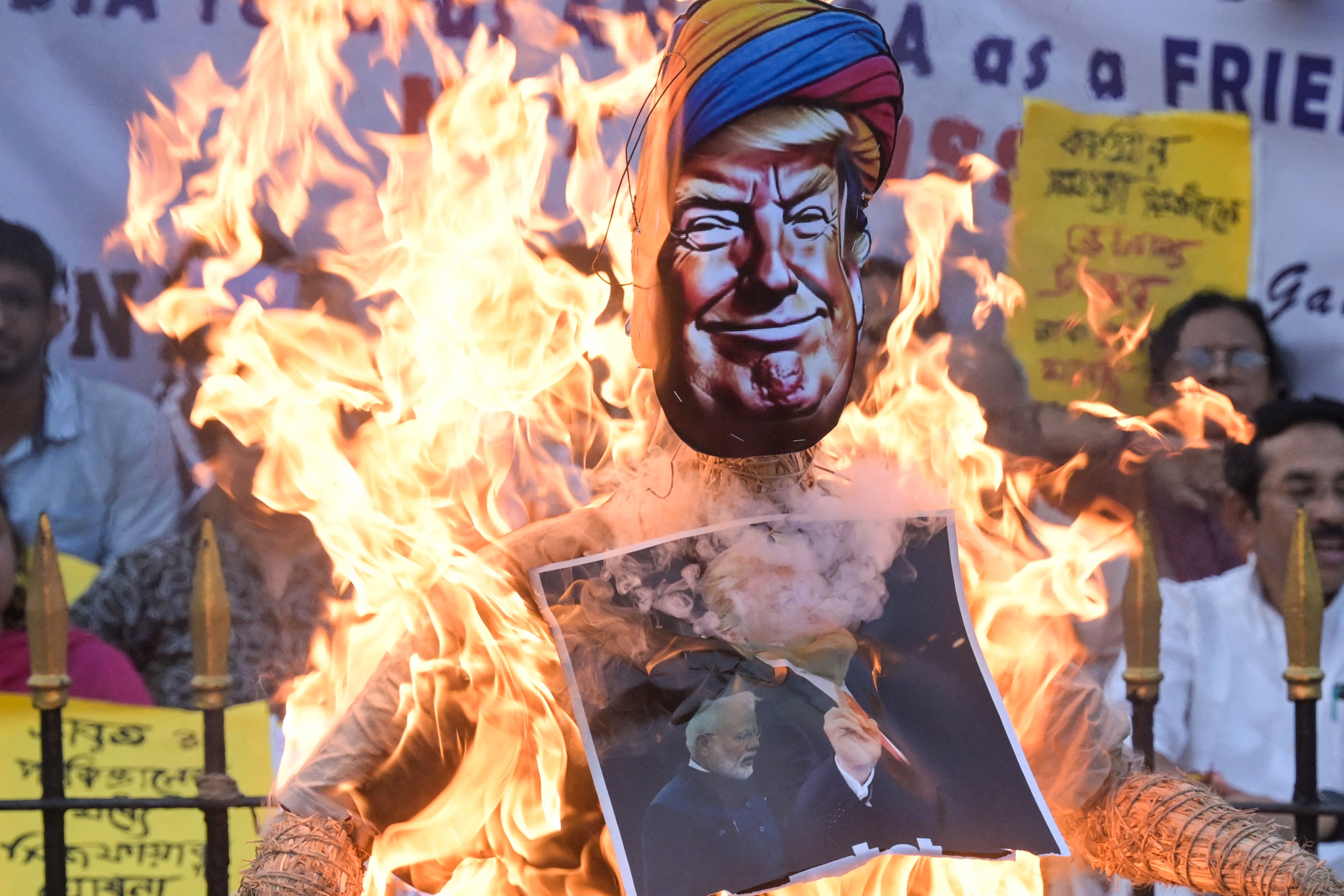Pakistani prime minister Shehbaz Sharif said he was ready for peace talks with India, just days after the South Asian nuclear powers ended their worst military conflict in decades.
Four days of intense fighting between the nations last week ended with a ceasefire agreement, which US president Donald Trump took credit for.
The truce was extended until Sunday after the two military operations chiefs spoke on the phone, Pakistani foreign minister Ishaq Dar told parliament. The Indian military said the neighbours had agreed to take steps to lower tensions.
“Now let us talk about peace. We are ready for that,” the Pakistani prime minister said while addressing cadets and pilots at an air base in Kamra. "If terrorism has to end in the region, let us sit and talk and see who is a terrorist and who is a target of terrorism."

Pakistan's foreign ministry on Friday called upon "international partners" to ensure India "remains committed to de-escalation". The ministry said that "Pakistan remains committed to the ceasefire with India and taking necessary steps towards de-escalation".
"Should India resume hostilities, Pakistan will have no choice but to respond," the ministry warned.
India on 7 May launched missile strikes on Pakistan on what it alleged were militant hideouts, to avenge the killing of 26 people, mostly Hindu tourists, in a terrorist attack in Kashmir on 22 April.
New Delhi accused Pakistan of backing the gunmen who carried out the massacre. Islamabad denied the charge and sought an independent investigation.
The conflict quickly spiralled as the two countries exchanged artillery fire along the de facto border in Kashmir – the restive Himalayan region that they both hold in part but claim in full – as well as missile and drone strikes on military installations.
The Indian military claimed that it had killed nearly 100 militants with its strikes and 35-40 Pakistani soldiers in subsequent action along the de facto border.
The Pakistani army said the conflict had left 11 soldiers and 40 civilians dead, including women and children. A minister last week claimed their armed forces had killed 40-50 Indian soldiers.

Both India and Pakistan claimed to have downed each other’s fighter jets in a dogfight that reportedly involved over 125 aircraft, making it the largest aerial battle since World War Two. Both sides also claimed victory in the overall fighting.
India’s defence minister, Rajnath Singh, on Thursday suggested that the International Atomic Energy Agency should take charge of Pakistan's nuclear weapons.
“Are nuclear weapons safe in the hands of such an irresponsible and rogue nation?" Mr Singh asked while addressing soldiers in Kashmir. "I believe that Pakistan's nuclear weapons should be taken under the supervision of the IAEA."
Pakistan's foreign ministry condemned Mr Singh's remarks, saying they showed India's "insecurity and frustration" about the country’s "effective defence and deterrence against Indian aggression through conventional means".
Mr Singh’s statement came after the UN nuclear watchdog agency said there had been “no radiation leak or release from any nuclear facility in Pakistan" amid rumours that India had targeted a nuclear weapons facility in the neighbouring country.
India denied targeting Pakistan’s alleged nuclear installations in Kirana Hills of Punjab.
India and Pakistan became nuclear powers after conducting tit-for-tat nuclear tests in 1998 and their decades-old animosity made the world's most populous region one of its most dangerous nuclear flashpoints.

Meanwhile, Mr Trump said during his visit to Qatar that the conflict in South Asia had been settled after he urged India and Pakistan to focus on trade instead of war.
“I hope I don't walk out of here in two days to find out that’s not settled, but I think it is settled, and we talked to them about trade, let's do trade instead of doing war," he said.
The president was the first to announce the ceasefire last Saturday, indicating it was reached due to Washington's diplomacy and pressure.
While Pakistan thanked the US for its involvement, the Indian foreign ministry said this week the issue of trade did not come up in talks with Washington and that the understanding to stop fighting was reached directly with Islamabad.
Indian prime minister Narendra Modi declared that his military would hit what he described as terrorist hideouts across the border again if there were new attacks on India. India would not be deterred by Islamabad's "nuclear blackmail", he said.
Pakistan said earlier this week that it remained committed to the truce but vowed to respond with full resolve to any future aggression by India.







